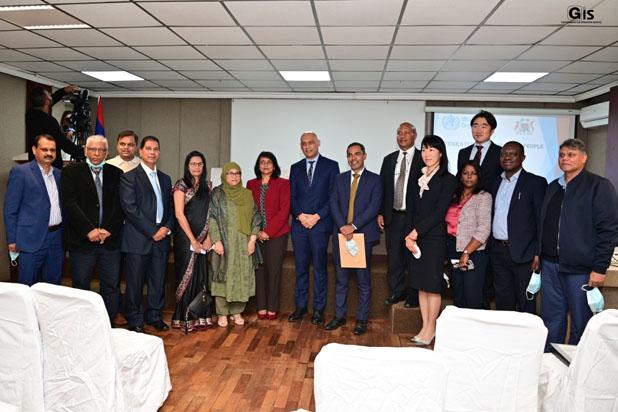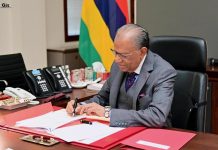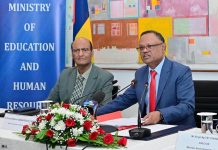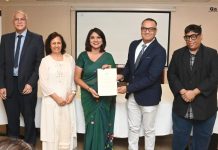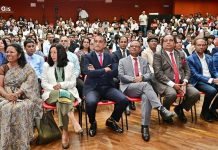Africa-Press – Mauritius. A workshop on the Integrated Care for Older People (ICOPE) project aimed at meeting the challenges of an ageing population in Mauritius opened, this morning, at the Gold Crest Hotel in Quatre Bornes.
The Minister of Health and Wellness, Dr Kailesh Kumar Singh Jagutpal, was present. A World Health Organisation (WHO) team is currently in Mauritius in the context of the development of a strategic plan on ICOPE.
The ICOPE project encompasses a comprehensive and holistic approach that will create clear pathways of screening, diagnosis and treatment for a broad range of medical issues such as vision loss, hearing loss, dentition issues, dementia, osteoporosis and incontinence among others.
In his address, Dr Jagutpal recalled that Mauritius has a population of about 1.3 million and is witnessing a demographic shift with the declining fertility rate and increasing life expectancy.
The proportion of people aged above 60 years is projected to increase from 18.3 percent in 2020 to 37 percent in 2060. The elderly population will increase from 223,000 to above 338,000 in 2060. Life expectancy at birth is projected to increase from 78 years in 2020 to 80 years by 2050, he said.
He highlighted that the Health Sector Strategic Plan 2020-24 of the Ministry of Health and Wellness adopts a lifelong health approach adding that within this framework, a specific programme for the elderly will be devised with the assistance of the WHO experts.
Dr Jagutpal underlined that Government aims to ensure that the growing number of elderly people in Mauritius enjoys good health and well-being as well as prolonged life.
In that context, he emphasised that health personnel must learn to better assess, and take charge of aging pathologies such as mobility, memory, hearing and vision disorders as early as possible, but also mental disorders and under nutrition.
We endeavour to attain a level of competence in service development and delivery that will not only benefit the elderly in Mauritius, but also serve as a model in several countries overseas.
But above all, we want to offer our elderly people a happy, active and fulfilled old age, and Mauritian couples who want it, an increased possibility of giving birth to children, he added.
Speaking about the fertility rate in Mauritius, he observed during the last 25 years, the total fertility rate has steadily decreased to below replacement fertility level of 2.1, that is the rate required for a population to replace itself.
In 2020, the fertility rate was 1.4, which is lower than the average for Europe standing at 1.6, said the Minister. He underlined several initiatives taken by the Ministry to address the low fertility rate in the country, including the launching of the first public Fertility Clinic at the SSRN Hospital in Pamplemousses.
In a bid to implement health and wellness projects enumerated in the Government Programme 2020-2024, health services are being decentralised and a fast-track system for elderly people at all health care facilities has been introduced and the yearly immunisation campaign targeting the elderly is ongoing to protect against them against seasonal influenza.
Furthermore, elderly people have been encouraged to get vaccinated against COVID-19 to protect and prevent this vulnerable group of the population, stated Minister Jagutpal. Four experts from the WHO are in Mauritius to help the Ministry achieve its objectives laid out in its Health Sector Strategic Plan 2020-2024.
The WHO experts are from different fields such as Ageing, Reproductive Maternal Health, Sociology, Gender Equity and Human Rights and will help in assessing the situation on two crucial issues namely: ageing Population and fertility rate in Mauritius.
ICOPE is a World Health Organisation initiative. It has developed a multi-sectoral framework to support the implementation of the global strategy and action plan on Healthy Ageing at country level.
For More News And Analysis About Mauritius Follow Africa-Press


